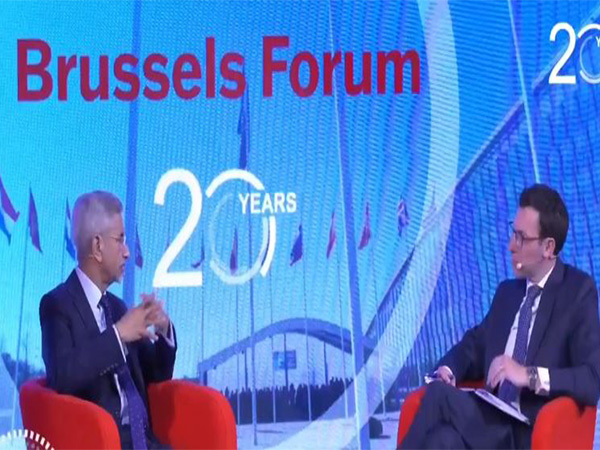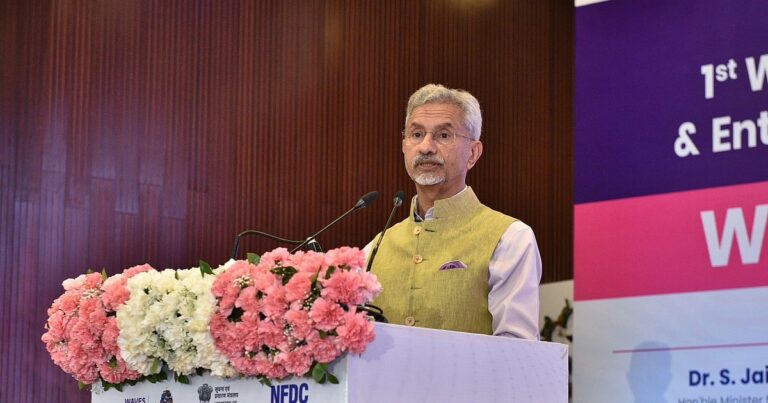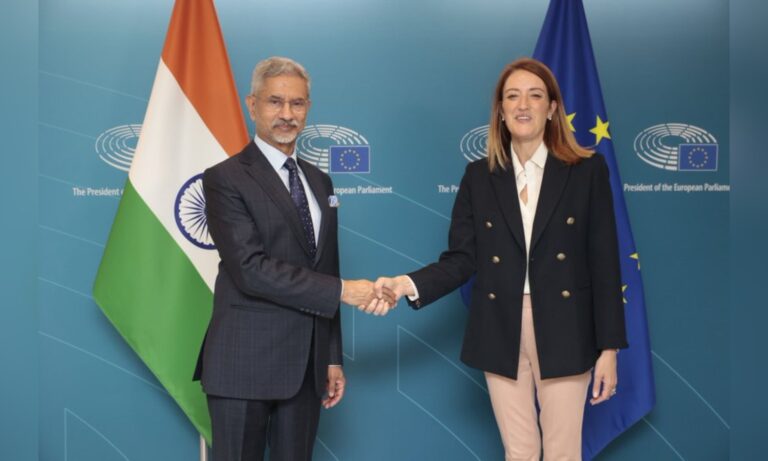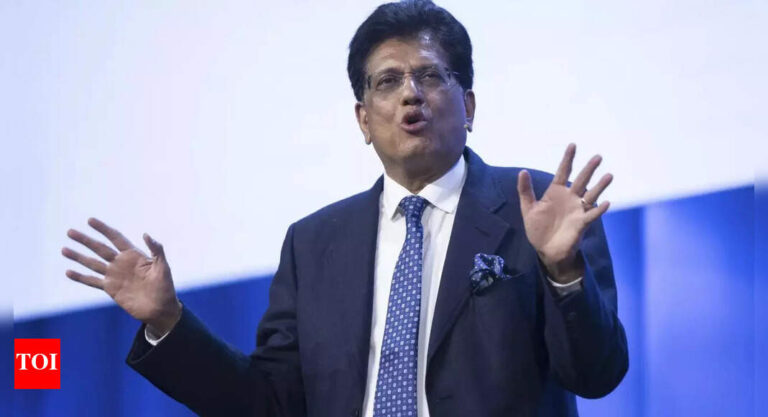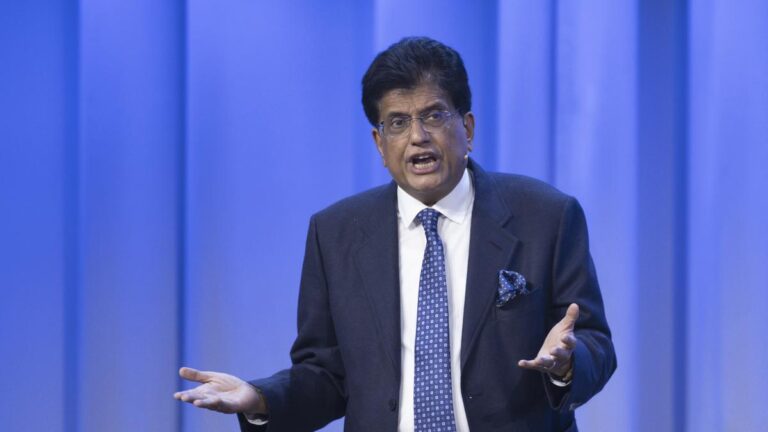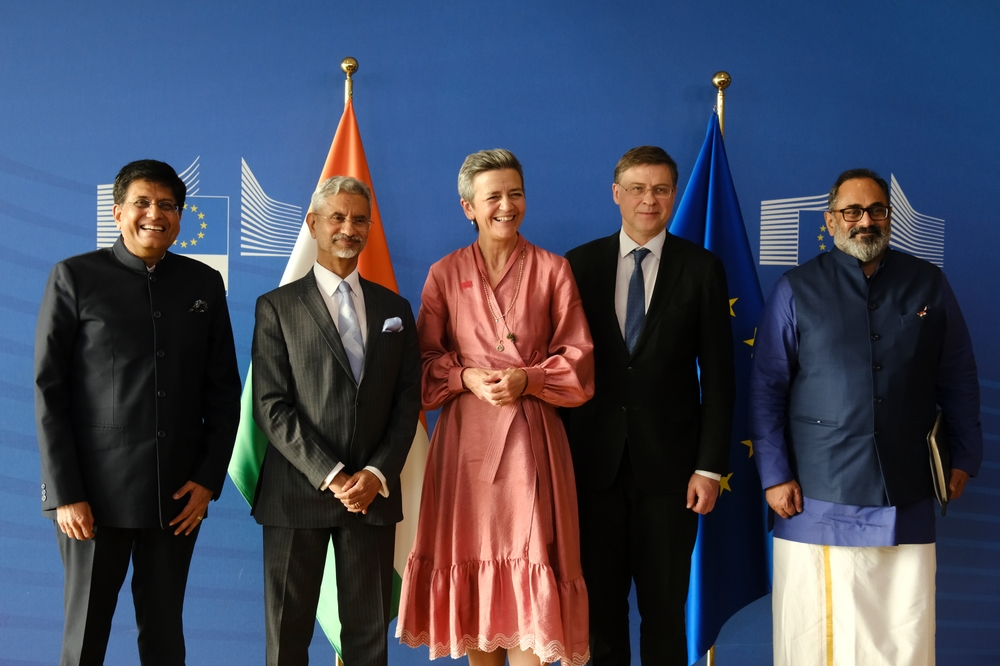
India is looking for more engagement with the European Union, just as the EU increases its presence in Indo-Pacific. But the continuation of the harmony of India is in a complex context involving China and Russia.
Xhoi Zajmi d’Euractiv sat with His Excellency, Mr. Saurabh Kumar, Ambassador of India to Belgium, Luxembourg and the EU, to discuss the victories and the challenges facing this revival partnership.
XZ: 2024 marks on 20th anniversary of the strategic partnership between India and the EU. What would you emphasize as the most important achievements in this partnership, as well as the areas where more can be done?
SK: India was one of the first countries to establish relations in 1962 with the European Economic Community of the time. This relationship has developed and deepened since then. In 1994, a cooperation agreement was signed which, Inter-Great, provided for a regular political dialogue. During the fifth India-UE summit in The Hague in 2004, the relationship was upgraded to a strategic partnership.
As India has grown – it is today the fifth world economy and expects to become the third largest – India, EU mutual interests, commitments to democracy, the rule of law and an international rules based on the rules, have deepened our links.
Our cooperation is spreading today on a wide range, from politics and security to trade and economics; Green and digital transitions to critical minerals and emerging technologies; from space to nuclear; from health to agriculture; culture education; And much more.
Thus, I would evaluate depth and resilience as important achievements, but also the expansion of the relationship of the relationship with economic predominance to a more holistic relationship.
Of course, we are impatient to engage with the EU through the whole spectrum, because it evolves itself. Today, the two parties approach relations taking into account geopolitical realities and our long -term interests.
XZ: On Europe, the Indian Minister of Foreign Affairs S. Jaishankar described India-Eu-Euan Relations as stronger as ever, affirming that India and the EU are “natural partners in a multipolar world”. What does this natural partnership involve?
SK: The participation of the Minister of External Affairs, Dr. Jaishankar, the celebrations of the day of Europe in New Delhi, was indicative of the importance that we attach to this relationship. Its declaration that India and the EU are natural partners in a multipolar world, reflects the way we put the relationship in the global context.
My own meaning is that the EU (also) realizes the importance of the relationship, although this tends to mask by the immediacy of other challenges.
The natural partnership implies mutuality of interest and geopolitical convergence. The last Summit of India-EU presented an ambitious roadmap for our strategic partnership; The next one, which would be held next year, would accumulate in depth on this subject.
There is a lot to do. For example, in recent years, we have witnessed the vulnerabilities of global supply chains. There is a need for more resilient supply chains that are not geographically concentrated, and India can be an important partner in this area.
Challenges such as terrorism, climate change, energy transition, trust partnerships in technology, migration, reformed multilateralism and others require our joint effort and cooperation. In addition, while Europe increases its involvement in Indo-Pacific, this would bring us closer as partners.
XZ: How do you justify this natural partnership in the context of the continuous narrow relations of India with Russia and the recent visit of Prime Minister Modi in the country?
SK: Our natural partnership with the EU is not exclusive. We have a historical relationship with Russia (former Soviet Union). Foreign policies are prosecuted while keeping in mind national interests and India does the same.
We have been categorical that it is not a time of war and that the conflict must be resolved by dialogue and diplomacy. We have kept the communication channels open with Ukraine and there have been meetings in terms of leadership with the president (Volodymyr) Zelenskyy. The Minister of Foreign Affairs (Dmytro) Kuleba was in New Delhi, not so long ago.
There are geopolitical interests in our commitment to Russia. I have interactedly interacted in Brussels who see the point of view of India.
XZ: What about India’s relationships with China?
SK: Our relationships with China are complex. Galwan’s incident on the Indian-Chinese border in mid-2010 was a serious setback to our relationship.
Our communication channels at the diplomatic and military level are open and cannot be business as usual unless problems emanating from Chinese actions in our border areas are resolved.
XZ: Back to the EU and India. The European Parliament admits that bilateral relations have not yet reached their potential. The rapprochement focused mainly on the conclusion of a free trade agreement (ALE).
Do you see that discussions are reproduced because the elections on both sides are now over? How can we reach the full potential of Indian-EU dynamics?
SK: What is important is to progress the relationship over time. As I mentioned, we have done well by this criterion, but there is no longer to do. It is understanding the highest political leadership levels.
The year has seen elections in India and Europe, and the EU transition cycle is underway. We look forward to the commitment to resume at the end of the transition; In fact, the work for the next working top is already underway.
Our other commitments have also continued, such as ALE negotiations, dialogues in areas such as defense and security, maritime, disarmament, etc. And high -level meetings on secondary lines on international events. But yes, we look forward to things that accelerate and prepare for the same thing.
XZ: What exactly would FTA mean for India? Despite the lack, trade between the teams continued and last year, the EU exceeded the United States and became the largest trading partner in India.
How will the FTA benefit India and how do you see both parties to converge?
SK: We have had eight ALE negotiation cycles since 2022, and the ninth is scheduled for September. Ale negotiations in general are not easy and the India-EU negotiations were not different. The important point is that there is a strong political commitment on both sides to conclude a complete and balanced ALE.
India-EU trade is indeed in robust growth and was around 135 billion euros during the year 2023-24.
But the ALE does not only consist in extending trade, which is important, but also on the economic security and the resilience of the supply chain; This is growth, but also to deactivate economic dependencies and strategic vulnerabilities; These are trusted partners for commercial, investment and technology collaborations.
In short, the ALE has a strategic and political dimension. India and the EU realize and have committed to working at its conclusion.
I can also add that India is the biggest economy to the fastest growth in the world with a sustained growth projection in the coming decades. It has 522 million inhabitants of work with a median age of 29 years.
The India GDP growth rate in 2023-24 was 8.2%. By 2047, it should become an economy of 32 billions of dollars. It is also one of the fast -growing markets that offers its partners sustained short and long -term growth. Thus, there is a strong mutuality of interest.
XZ: The second round of the EU-India Commerce and Technology Council (TTC) is also due. After the first meeting in May of last year, what results do you expect from this next meeting?
SK: India-EU TTC is an important mechanism of our partnership. The EU has this partnership only with the United States and India. In this context, we engage in three working groups linked to i) strategic technologies, digital governance and digital connectivity; ii) green and clean energy technologies; and III) Resilient value chains, trade and investment.
In these flows, we work in fields such as quantum and high performance IT, artificial intelligence, semiconductors, digital skills and digital public infrastructures; Battery technologies, marine plastic litter, hydrogen waste; And resilient value chains, market access and IDE screening and multilateral commercial problems. An understanding protocol on semiconductors was signed in November 2023.
XZ: There has been a new European parliament since the June elections and a new college of commissioners set up soon too. How do you see the interaction with India continuing after these changes?
SK: Let me congratulate the EU for its successful elections and parliamentary support to the President of the Commission.
We are waiting for the EU’s transition cycle to be finished. In the meantime, we will organize our bilateral dialogues such as foreign and security policy consultations, strategic partnership reviews and in areas such as energy, climate and the environment.
The next TTC meeting is also due and the Ale towers are underway. All this would lead to the next top.
(By xhoi zajmi I edited by Brian Maguire | Euractiv’s Advocacy Lab)
